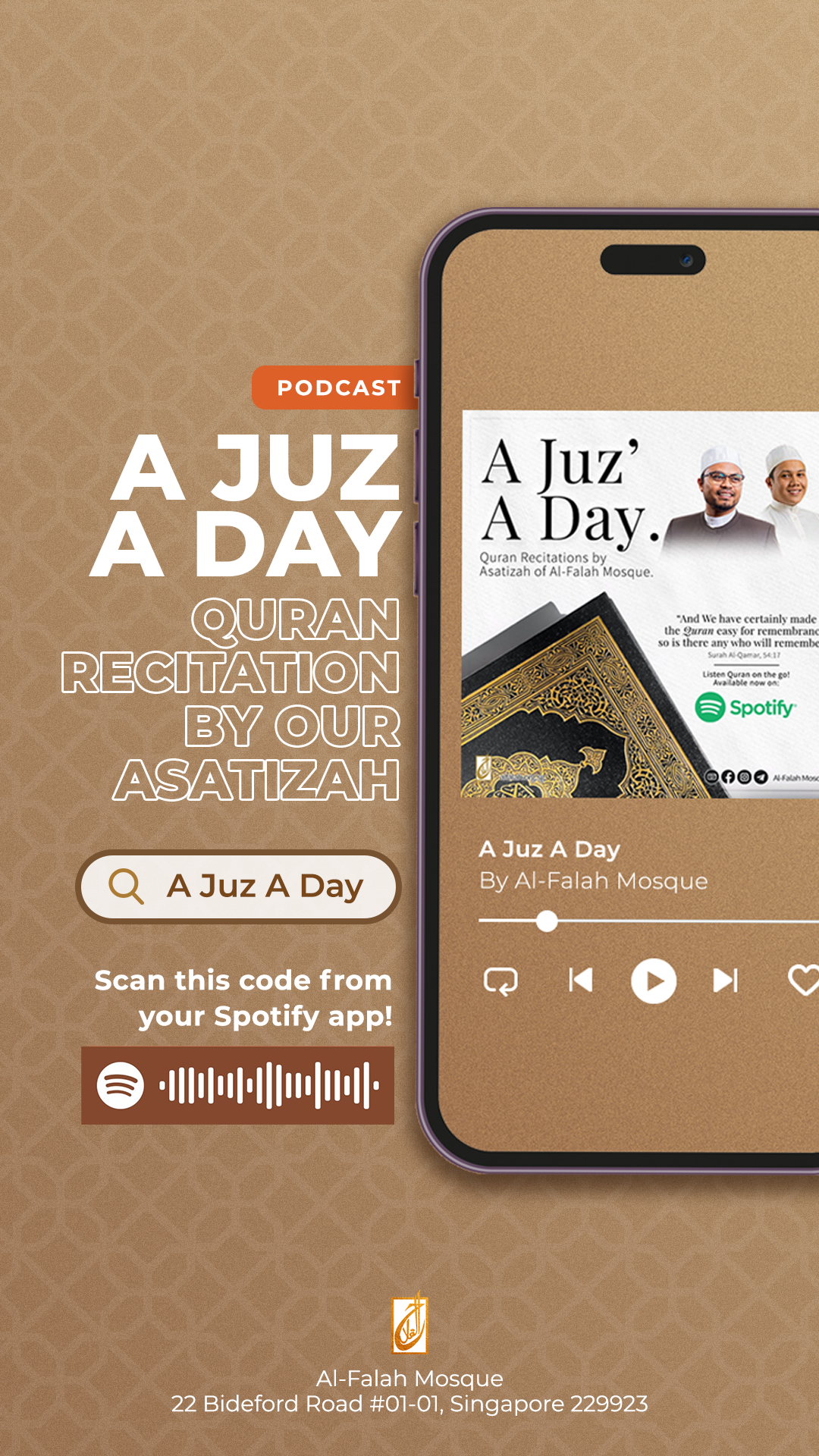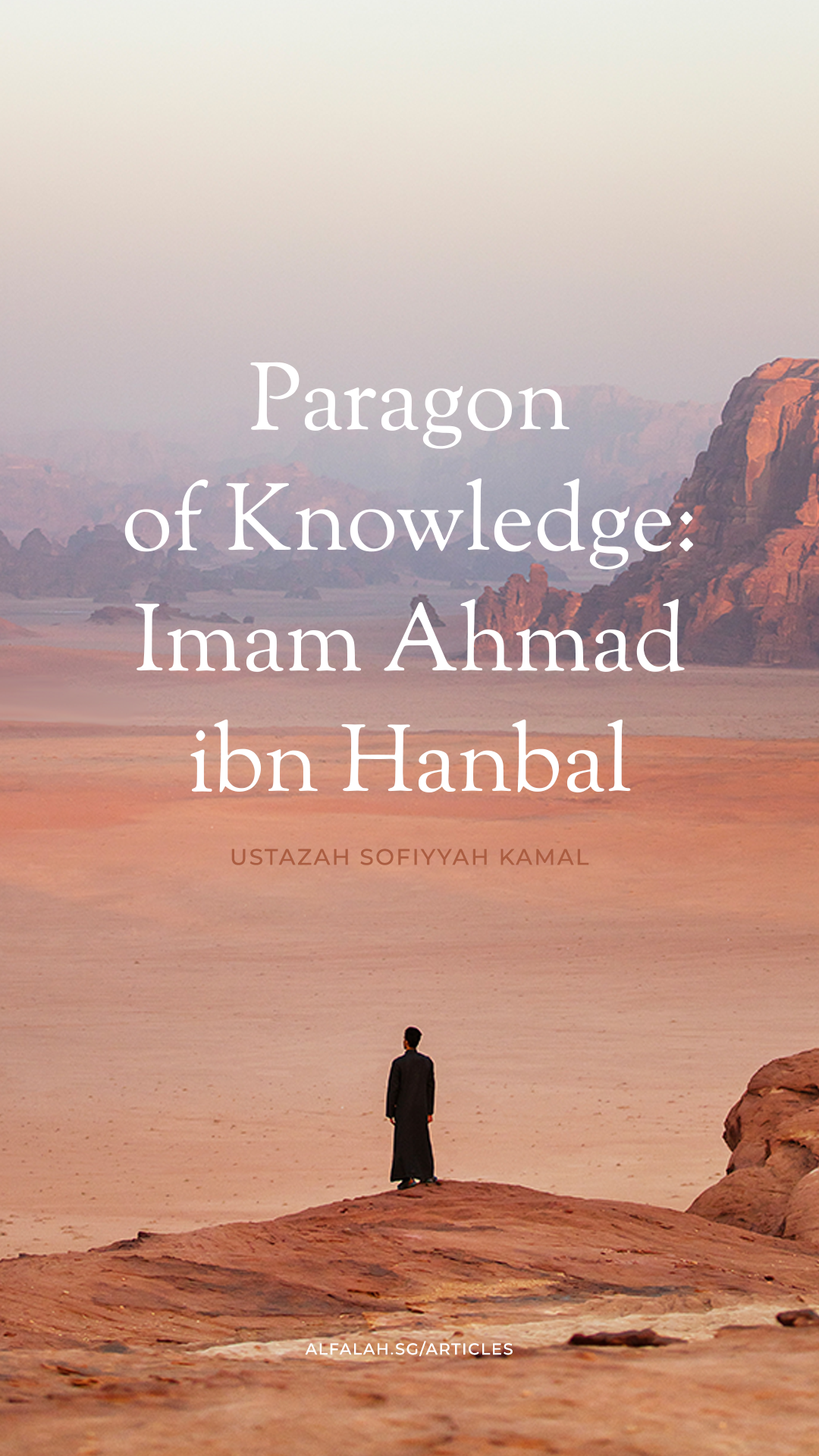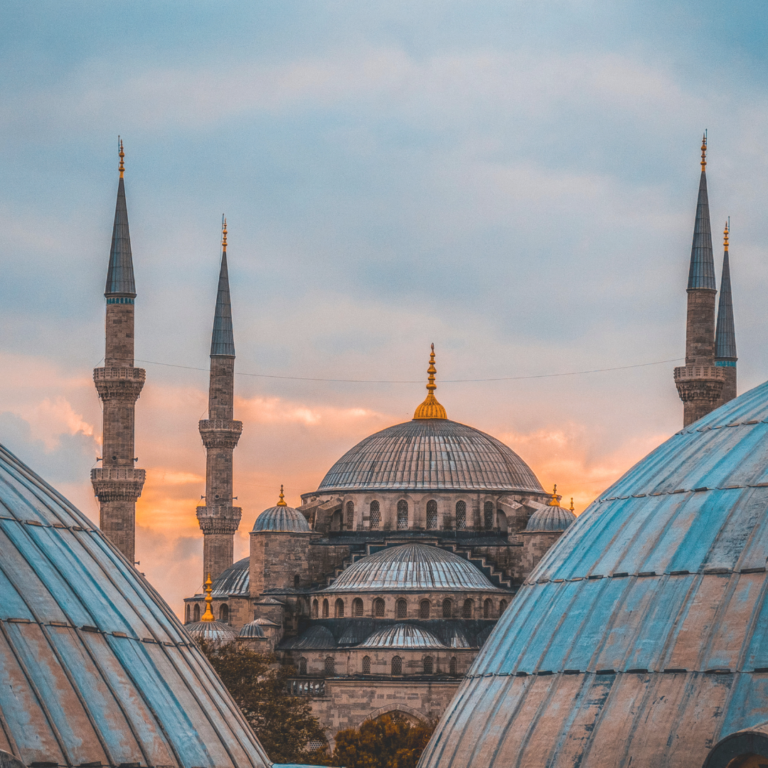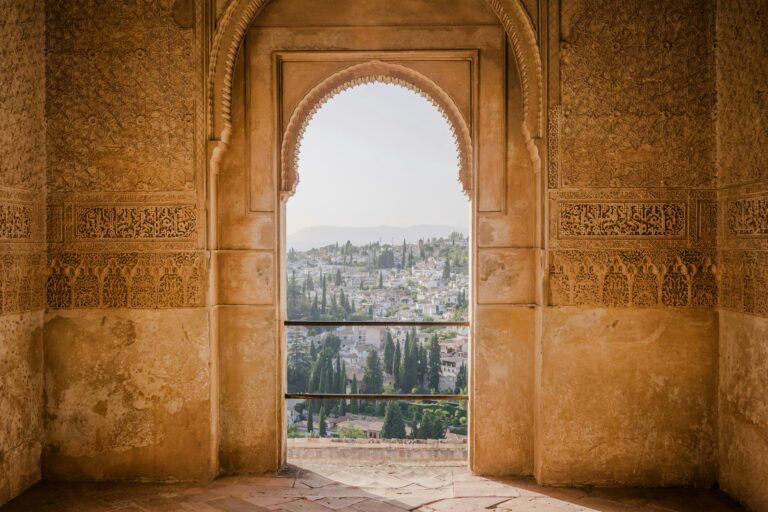Ramadan, Articles
Ramadan Beyond Ramadan
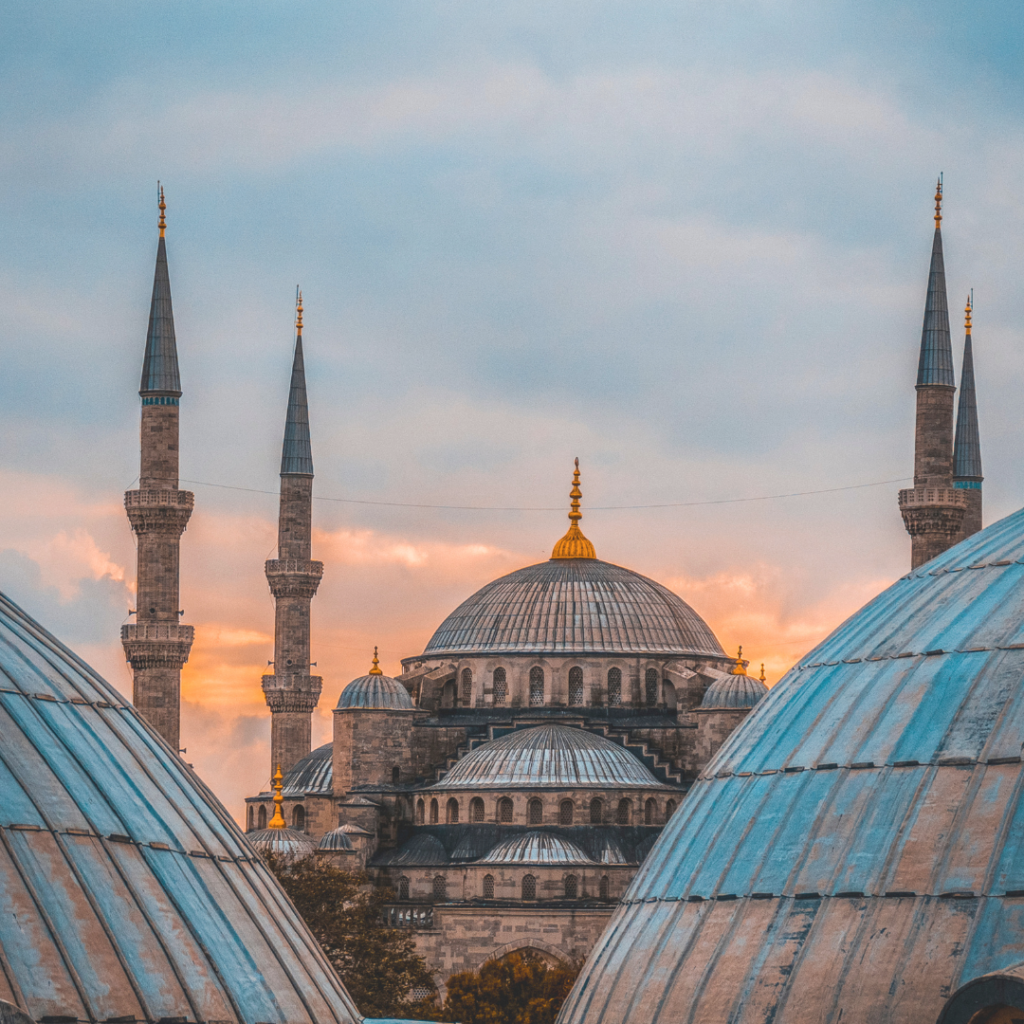
Day by day, Ramadan reaches its epilogue, and yet again we conclude the blessed month with a yearly nagging confusion that rings in our minds. “Where did all of that time go?”
For some, Ramadan was an eventful and productive month glutted with blessings, acts of worship and an ample amount of time for reflection. Meanwhile for others, Ramadan was a staggering process of struggle, inconsistencies, temptations and unexpected turn of events that led to a rather disappointing performance in the special month. Ramadan is different for every one of us, and despite these differences, Allah SWT has promised one thing. He mentions:
يَـٰٓأَيُّهَا ٱلَّذِينَ ءَامَنُواْ كُتِبَ عَلَيۡكُمُ ٱلصِّيَامُ كَمَا كُتِبَ عَلَى ٱلَّذِينَ مِن قَبۡلِكُمۡ لَعَلَّكُمۡ تَتَّقُونَ
“O you who have believed, decreed upon you is fasting as it was decreed upon those before you that you may become righteous.” (2:183)
Fasting has been a practice of the people of the past and carried on to the people of the present for its immense benefits it confers to Man. It is safe to say that humans need fasting as an innate part of nourishment and even survival (ie the survival of the soul), more specifically so in the month of Ramadan, as it is a means of nourishment for the wandering and lost ruh. Allah SWT then persists in mentioning that Ramadan is a month that aims to invigorate Taqwa, which is righteousness, and such a trait can be attained through the obligation of fasting and the supererogatory fasts. The scholars then allude further that fasting is an ‘armour’ or what they would call as the ‘junnah’ in the Arabic language because it shields the believer from its lusts and attempts to evil.
The whole discussion pertaining to Ramadan and the pursuit of attaining Taqwa is lengthy, but since the end of Ramadan seems to be closing in, the question to ask is this: How can we preserve this gained spiritual strength outside of Ramadan, and will we ever be the same as we are here and now (ie: in Ramadan)? Additionally, what if this Ramadan was not a good month for an individual in the first place so much so that he or she feels as though Taqwa is but a far-fetched and almost impossible goal?
Ending Ramadan on a high note
The most common flaw of human beings is the tendency of giving up when we see something as impossible to achieve. We forget that truly nothing is impossible in His power and omnipotence. It must be noted that the habit of spiralling into a series of intrusive thoughts and overthinking is only unproductive. Allah Azza wa Jalla, with His knowledge and wisdom understands the nature of human beings who are susceptible to negativity and a loss of hope, and so, He mentions in a very famous verse;
قُلْ يَاعِبَادِي الَّذِينَ أَسْرَفُوا عَلَى أَنْفُسِهِمْ لاَ تَقْنَطُوا مِنْ رَحْمَةِ اللَّهِ إِنَّ اللَّهَ يَغْفِرُ الذُّنُوبَ جَمِيعًا إِنَّهُ هُوَ الْغَفُورُ الرَّحِيمُ
“O My servants who have transgressed against themselves [by sinning], do not despair of the mercy of Allah. Indeed, Allah forgives all sins. Indeed, it is He who is the Forgiving, the Merciful.” (39:53)
He also reminds that humans will be blameworthy creatures until the ends of time, and it is then incumbent upon him to engage in Taubah (repentance) when he has transgressed. Allah SWT reminds us:
إِنَّمَا التَّوْبَةُ عَلَى اللَّهِ لِلَّذِينَ يَعْمَلُونَ السُّوءَ بِجَهَالَةٍ ثُمَّ يَتُوبُونَ مِنْ قَرِيبٍ فَأُولَئِكَ يَتُوبُ اللَّهُ عَلَيْهِمْ وَكَانَ اللَّهُ عَلِيمًا حَكِيمًا
“(And remember that) Allah’s acceptance of repentance is only for those who commit evil out of ignorance and then soon repent. It is towards such persons that Allah turns graciously. Allah is All-Knowing, All-Wise.” (3:17)
As Ramadan has come to its end, and a new month rolls in, Muslims must not slack nor give up, and see the last lap as a means to do the best he or she can potentially do. The believer will remember the promises of Allah SWT, and come into the last ten stronger, running faster and closing it on a high note. The idea that should be espoused in the mindset of a Muslim towards the end of Ramadan is narrated in a profound Hadith, where the Prophet SAW mentions as part of a longer Hadith:
وَإِنَّمَا الأَعْمَالُ بِخَوَاتِيمِهَ
“Indeed, actions are by their endings.” (Sahih Bukhari)
This profound saying alludes that in any case, even if we were to falter at the start or in the middle should not worry a person for what matters most is the end. One should strive religiously at the end of the Ramadan journey, so that he or she may reap the biggest rewards and satisfaction. One should not mull over the ‘what-ifs’ or what has preceded and proceed to planting his remaining seeds in the last 10 nights of Ramadan. Our supplications should be heightened, sleep should be sacrificed and more of our wealth should be distributed to the poor and needy in the last 10 nights of Ramadan. An ‘all-out’ mindset should be ingrained in every self who yearns His mercy and grace before the end of blessed month even if it were to be that he has only a night or two nights left.
Syawwal: Reoriented
For the believer, Syawwal, and more specifically the Eidul Fitr, is a day to look forward to. We relate to Eidul Fitr as a day of rejoice and relief, after a month of strenuous spiritual and mental activity. Allah SWT rewards us with a day where none is allowed to fast, and eating and drinking is an act of worship if it is to show gratitude to Allah SWT. Interestingly, when we look back into the lives of the pious predecessors, we find that many of them view Eid as a seemingly sombre affair, and would weep earnestly for the passing of Ramadan. On the first day of Syawwal, the Soliheen would conscientiously reflect on whether their deeds were accepted or not throughout Ramadan, and while others rejoiced, they were diligently praying to meet the next Ramadan. It was related in a narration that a pious individual by the name of Wuhayb Ibn Al-Ward saw a group of people laughing on the day of Eid and he said:
“If their deeds were accepted in their fasts (by Allah SWT), then this act (their laughter) is an act of those who are most grateful (for the day of Eid). And if their fasts were not accepted (by Allah SWT) then this is not the act of the fearful (ie the pious).”
This provides us with a paradigm shift from the conventional understanding of Eid, where it is only perceived as a day to enjoy with our family members, don new clothes, visit different houses and devour an array of dishes. Contrary to this belief, Ibn Rajab Al-Hanbali emphasises:
“Eid is not for the one who wears new clothes, but Eid is for the one whose obedience increases. Eid is not for the one who dresses beautifully and rides (good transportations), but Eid is for the one whose sins are forgiven. On the night of Eid, the emancipation and forgiveness is divided among the slaves; whoever receives any of it has received Eid, otherwise it is cast far away (ie: to denote that he is a wasted/lost cause).”
With the very reason of invoking piety, fasting the 6 days of Syawwal is highly encouraged and those who do so will receive promised rewards. The one who fasts the 6 days of Syawwal after he or she has fasted Ramadan in sheer faith and sincerity will be as though he or she has fasted for the entire year. It is related in a Hadith:
عَنْ أَبِي أَيُّوبَ الْأَنْصَارِيِّ أَنَّ رَسُولَ اللَّهِ صَلَّى اللَّهُ عَلَيْهِ وَسَلَّمَ قَالَ مَنْ صَامَ رَمَضَانَ ثُمَّ أَتْبَعَهُ سِتًّا مِنْ شَوَّالٍ كَانَ كَصِيَامِ الدَّهْرِ
Abu Ayyub reported: The Messenger of Allah, peace and blessings be upon him, said, “Whoever fasts the month of Ramadan and then follows it with six days of fasting in the month of Shawwal, it will be as if he has fasted for the entire year.”
(Sahih Muslim, 1164)
In sum, true Eid is an Eid that brings any individual closer to faith and god-consciousness, with sincere intentions to be better individuals post Ramadan. Imam Anas Bin Malik puts the true concept of Eid beautifully in his saying:
“The believer has five Eids: Every day that passes by the believer and no sin is recorded on him is a day of Eid, the day on which he leaves this world with faith is a day of Eid, and the day on which he crosses the Sirat and is safe from the horrors of the Day of Resurrection is a day of Eid, and today The one on which he enters Paradise is a day of Eid, and the day on which he looks to his Lord is a day of Eid.”
Know thy enemy
In the month of Ramadan, Allah SWT has bestowed upon His ummah the blessing of distancing the evil of the Shaytaan from ourselves, so as to achieve maximum rewards. Unfortunately, this bliss is only one that lasts a month, and when it ends, the devils wander freely as they recompense for their lost time. They return back with their mission of corrupting human beings on Earth, through whatever means possible. If an individual does not build his fortress, then Ramadan is but a waste for him as he falls into the deceptions of Shaytaan once again. The pious would say:
“How miserable are the people who do not know God Almighty except in Ramadan.”
The days outside of Ramadan are harder battles to conquer and one must bridle their temptations to be aware of the enemy, whose aim is to pull weak souls back to its lowly selves. When we become cognisant that there is a being that seeks to lure us to a path of corruption, we should enhance our strategy in creating a shield to protect ourselves from this deceit. If Ramadan was a month that was known for its junnah (shield/armour), then a believer should create his own junnah in the normal months too.
The believer must also have the sheer determination, strength and most importantly confidence to combat this enemy. One of the most important ways to do so is to engage in constant remembrance of Allah SWT so as to achieve peace in the heart and mind. The one who strives to do so should also hold firm to the words of Allah SWT where He mentions in a compelling verse:
وَمَنْ أَعْرَضَ عَن ذِكْرِي فَإِنَّ لَهُ مَعِيشَةً ضَنكًا
And whoever turns away from My remembrance – indeed, he will have a depressed life (20:124)
This should serve as a motivation for the one who truly aims for piety even when outside of Ramadan, for the remembrance of Allah SWT is what would keep the mind and soul at ease. Human beings yearn for nothing more than the tranquility of the soul. In order to achieve this, one should act, speak and follow whatever is in the remembrance of Allah SWT, and should abstain from debauchery and idleness that would distance himself from goodness and piety.
The easiest way to ward off whispers from this silent enemy is through constant repentance, which may be done by actively engaging in Istighfaar, and seeking refuge from the cursed Shaytaan, for his whispers are what has led mankind astray. This should also be coupled with constant reflection and recalibration of the soul, and to live by the maxim that every day as a means to grow closer to Allah SWT. This is in line with what Allah SWT mentions in a verse close to our souls:
وَإِمَّا يَنزَغَنَّكَ مِنَ ٱلشَّيۡطَٰنِ نَزۡغٞ فَٱسۡتَعِذۡ بِٱللَّهِۖ إِنَّهُۥ هُوَ ٱلسَّمِيعُ ٱلۡعَلِيمُ
And if there comes to you from Satan an evil suggestion, then seek refuge in Allah. Indeed, He is the Hearing, the Knowing. (41:36)
Pray to meet the next Ramadan; and work to it as though you will not meet it again.
Ramadan is and will be a different journey for every individual. Some may face arduous Ramadans while others enjoy the serenity of the month with overflowing opportunities to commit worship. The focal point is that despite any circumstance, Ramadan will always be close to any believing Muslim’s heart because many of us recognise it to be a month of immense benefits, repentance and forgiveness. As it comes to its closure, a couple of attitudes should be entrenched in the mind of a striving Muslim to remain as pious, if not better than how we were in Ramadan. For the one who has been actively engaging in acts of worship, Qur’anic habits and perpetual Sadaqah (donation) during the month of Ramadan, he or she should persist in this post-Ramadan, and make it consistent even if it were small, or less than what he has done in the month.
As for the one who struggled in Ramadan, contrite and disappointed by his incompetence in Ramadan, this should be a motivation instead, to propel further and exert more efforts in the months after, with the sole intention of showing to Allah SWT that he is seeking His pleasure, even if it were after Ramadan. A ‘failure’ in Ramadan does not denote the end of his or her spiritual road, rather, it is an opportunity for a new beginning towards Taqwa.
Let us emulate the characteristics of the pious predecessors who practise the act of praying to meet the next Ramadan in advanced. This is related in many narrations in which the scholars would have been praying to meet the holy month again six months in advanced. Some of them would say:
“I have encountered people (of the pious) in whom the entry into Ramadan does not increase their deeds at all, and its exit does not decrease their deeds at all.”
Their abysmal love for Ramadan is incomparable to ours for which we lack, and as the month ends, we forget Ramadan and live our lives back to where we started. May the attitude of those who preceded us allow us to also become motivated to be as determined as they were when it came to Ramadan and committing to god consciousness.
May Allah SWT allow us to meet the next Ramadan in high spirits, and better – more god-fearing versions of ourselves. Ameen.
Disclaimer
Support Our Dakwah

